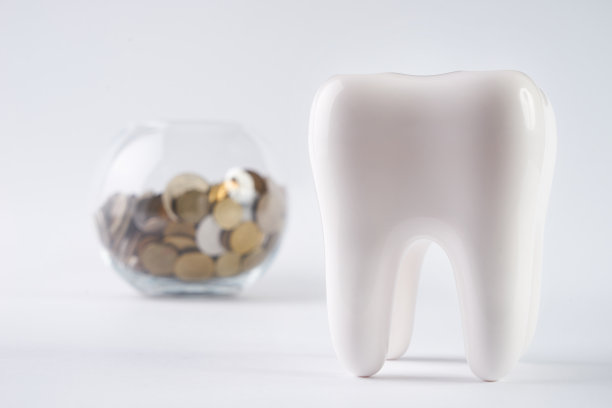Summary: Periodontal disease, often overlooked in discussions about health, can have profound implications on overall well-being. This article delves into the multifaceted impact of periodontal disease, exploring its relationship with systemic health, the psychological effects it may induce, and a variety of treatment options available. By understanding these dimensions, individuals can make informed decisions to enhance their quality of life. As we navigate the treatment landscape, we will uncover approaches that promise not just improved oral health, but also a holistic uplift in life quality.
1. The Connection Between Periodontal Disease and Systemic Health

Periodontal disease is associated with several systemic health issues, particularly cardiovascular diseases. Research has shown that inflammation caused by periodontal infections can contribute to the formation of arterial plaque, escalating the risk of heart attacks and strokes. Patients with periodontal disease often exhibit higher levels of systemic inflammation, which can exacerbate vascular conditions.
Moreover, the link between periodontal disease and diabetes has been well documented. Individuals with diabetes are more susceptible to infections, including periodontal disease, which in turn can lead to poorer glycemic control. This creates a vicious cycle where one condition exacerbates the other, highlighting the importance of managing oral health in diabetic patients.
Additionally, recent studies have suggested a correlation between periodontal disease and respiratory diseases. Bacteria from periodontal pockets can be aspirated into the lungs, leading to respiratory conditions such as pneumonia, especially in compromised patients. This underscores the need for comprehensive health care that encompasses oral health considerations.
2. Psychological and Social Impacts of Poor Oral Health
The psychological impacts of periodontal disease should not be underestimated. Individuals suffering from oral health issues often experience anxiety and depression due to the aesthetic and functional impairments associated with periodontal conditions. Concerns over bad breath, gum recession, and tooth loss can significantly affect self-esteem and social interactions.
Social stigma surrounding oral conditions can lead to social withdrawal and isolation. People may avoid social activities or personal relationships due to embarrassment about their oral health, which can further exacerbate feelings of loneliness and depression. This cycle creates a need for addressing mental well-being alongside physical treatment.
Furthermore, the financial burden associated with treating periodontal disease can add to stress levels. Many individuals face challenges in affording dental care, leading to neglect of oral health, which exacerbates their conditions. This creates a pressing need for accessible oral health care solutions to alleviate both physical and emotional distress.
3. Treatment Options for Periodontal Disease
Treating periodontal disease requires a multifaceted approach tailored to the severity of the condition. The initial step often involves thorough dental cleanings to remove plaque and tartar buildup. Patients are typically educated on improved oral hygiene practices to prevent recurrence.
In more advanced cases, scaling and root planing may be necessary. These deep cleaning procedures target the roots of the teeth and require local anesthesia for patient comfort. Subsequently, regular maintenance visits are crucial, as they help sustain oral health after initial treatment.
For severe cases, surgical interventions may be considered. Procedures such as flap surgery or bone grafting can restore health to affected gums and underlying structures. Additionally, emerging treatments like laser therapy are being explored for their potential to reduce discomfort and promote faster healing.
4. Improving Quality of Life Through Integrated Care
Improving quality of life for those affected by periodontal disease goes beyond just dental treatment. It requires an integrated approach that encompasses medical professionals, dentists, and mental health counselors. By fostering collaborative care, patients can receive holistic treatment that addresses not only their oral conditions but also their overall well-being.
Education and awareness play pivotal roles in prevention and early detection of periodontal issues. Programs aimed at educating communities about oral health can lead to better hygiene practices and regular dental check-ups. This proactive approach helps in minimizing the risk of periodontal disease and its associated health complications.
Lastly, ongoing research into the connections between oral health and systemic conditions offers hope for innovative treatment strategies. As we learn more about these relationships, tailored interventions can be developed to enhance both oral and overall health outcomes, ultimately improving the quality of life for individuals.
Summary:
In summary, periodontal disease is not merely an issue of oral health; it affects various aspects of physical and psychological well-being. Recognizing the implications of periodontal disease on systemic health and mental well-being allows for a comprehensive treatment approach that can significantly enhance quality of life. With proper awareness and integrated care, individuals can embark on a journey toward improved health and wellness.
This article is compiled by Vickong Dental and the content is for reference only.
Vickong Dental
Vickong Dental is a large medical group established in Hong Kong in 2008 by professors from well-known medical universities in Guangdong and Hong Kong, as well as medical doctors from key national '985' universities (including Master's supervisors and senior professors). The chain of branches brings together expert dentists with PhDs and Master's degrees from Hong Kong and Mainland China, committed to providing high-quality dental treatment.
"Vickong Dental Practices the University Motto of 'Healing and Serving Society,' with a Stable Operation for Sixteen Years. It Has Been honored with Hong Kong Enterprise Leaders's Choice,' and is a Global Trusted Implant Center for the Nobel Implant System. Recommended by Hong Kong Metro Broadcast and Guangdong Television, it Serves Customers from Over Thirty Countries and Regions, Gaining the Trust and Favor of Citizens from the Guangdong-Hong Kong-Macau Greater Bay Area and Surrounding Cities.

Thousands of customers' unanimous praise
The most recognized and highly recommended dental service by customers in the Guangdong-Hong Kong-Macau Greater Bay Area
We Ensure You Receive Detailed Care and Attention Here
Hong Kong standards, Shenzhen prices, Your Trusted English-speaking dentists

Vickong Dental Medical-Grade Instrument Disinfection Process
Vickong Dental Medical-Grade Instrument Disinfection Process

Vickong Dental Chain: A Warm and Comfortable Environment for Treatment






Appointment Hours

Q&A
Why choose Vickong Dental?
Vickong Dental practices the university motto 「Medicine to Benefit Society」, with each branch bringing together highly qualified dentists with doctoral and master’s degrees from Hong Kong and the Mainland, and has maintained seventeen years of steady operation。Recipient of 「2024 Hong Kong Enterprise Leaders Brand」, 「2025 Hong Kong Enterprise Leaders Brand」, a Nobel Biocare Global Trusted Implant Center, and a brand recommended by Metro Radio Hong Kong and Guangdong TV。
To date, we have served customers from more than thirty countries and regions,earning exceptionally high word-of-mouth recognition and trusted recommendations from residents across the Guangdong-Hong Kong-Macao Greater Bay Area and surrounding cities
We have eight major branches in Zhuhai、Shenzhen,and a consultation and service assurance center in Hong Kong,so you can book a free consultation at any time for any questions,which is very reassuring.
If I do not accept the quotation after the CT scan, will I be charged??
No! As long as the actual treatment has not started, you will not be charged any fees.
Will there be any additional charges during the treatment process?
No, there won’t be any additional charges. Before treatment begins, we will clearly explain the treatment plan and its corresponding fees. Only after the patient agrees and signs the consent form will we proceed with the dental service.
Can I pay in Hong Kong dollars?
Yes. Vickong Dental accepts payment in Hong Kong dollars. The amount will be converted based on the exchange rate of the day, and the applicable rate will be clearly communicated to you in advance.
Can I reschedule my appointment at any time?
Yes. Please contact us via **WeChat** or **WhatsApp** as early as possible, providing your original appointment time and details, along with your preferred new date and time slot for rescheduling.













